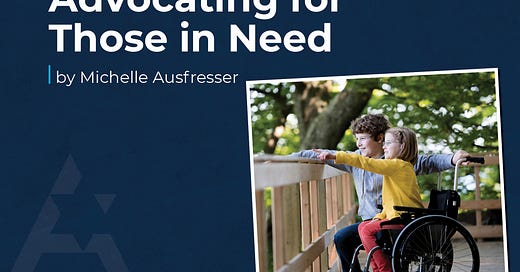Life with any kind of disability, whether medical, physical, or mental, can be a huge challenge. Sometimes just getting through a normal day can be a triumph.
There are programs and government services that help, but navigating the labyrinth of federal and provincial programs, understanding tax credits, or applying for assistance present real challenges. For those of us, like me, who have a disability and are also raising children with a disability, balancing everyday life, going to medical appointments, and accessing what supports are available are often completely overwhelming.
According to Statistics Canada’s most recent Canadian Survey on Disability (2017), more than six million Canadians (22% of the population), identify as living with a disability. Persons with disabilities have shorter life expectancies, disproportionately live in poverty, and earn less than Canadians without disabilities.
Today, February 17, is Jewish Disability Awareness Day. Members of Canada’s Jewish community, supported by Jewish Federations across Canada and the Centre for Israel and Jewish Affairs (CIJA), are joining to raise awareness among elected officials about the serious challenges faced by Canadians living with a physical, intellectual, or medical disability. At the core of Jewish tradition is a sense of shared responsibility to repair our world. On Jewish Disability Awareness Day, together, we advocate for a system that is more transparent, more accessible, and easier to navigate, so that all Canadians – Jewish and non-Jewish alike – can access programs that make life for those living with a disability and their loved ones a little bit easier.
We are proposing several concrete policies that will improve the lives of all. We are asking our federal representatives to reform the Disability Tax Credit to ensure it is more inclusive, particularly for those with disabilities that make gaining and retaining employment difficult. We are also advocating for the implementation of the Canada Disability Benefit (CDB), promised during the previous election as a once-in-a-generation opportunity to create meaningful change for people living with disabilities and to reduce the uncertainty many of us face every day.
The COVID-19 pandemic has exposed a crucial need for caregivers. Many of the most vulnerable members of our community faced extremely challenging situations over the last two years and did not have access to the assistance that was so urgently needed. Elderly and disabled Holocaust Survivors, for example, were isolated in their rooms with diminished access to crucial care. Single mothers with children living with disabilities were forced to spend significant sums of money on babysitters because parents were not able to bring siblings to medical appointments. Or they missed important medical appointments because of lack of childcare.
Canadians recognize that individuals with disabilities need help. We have made progress in providing services to vulnerable communities. But we can do better. As an individual living with a disability, I am glad that organizations like my local Jewish Federation and CIJA provide me with a platform to make my voice heard to government on these issues that are so important to me, my family, and the millions of Canadians living with a disability. On this important day of advocacy, we are making real and lasting change to reduce barriers, increase accessibility, and enhance the services provided to vulnerable Canadians to the benefit of all.
Michelle Ausfresser is a disability advocate who helps Albertans access disability supports and other services. Michelle is also the Edmonton Regional Representative to CIJA's National LGBTQ2+ Advisory Council.





